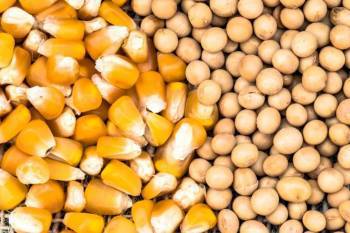NEW DELHI, 25 April 2025: A new international study has found that genetically modified (GM) crops, originally promoted as a solution to reduce pesticide use, have instead led to a deeper reliance on chemical inputs in agriculture — with India’s Bt cotton serving as a prime example of the paradox.
Published on April 14, 2025, in the Journal of Agrarian Change, the study titled “GM Crops and the Jevons Paradox: Induced Innovation, Systemic Effects and Net Pesticide Increases From Pesticide-Decreasing Crops” highlights the unintended consequences of GM technology over the past three decades. The research was conducted by scholars from Purdue University, Washington and Lee University, and the International Cotton Advisory Committee (ICAC) in the United States.
The authors examined four widely cultivated GM crops — Bt cotton, herbicide-tolerant (HT) soybean, HT and/or Bt maize, and HT rapeseed (canola). Their findings point to a global trend: despite initial reductions in pesticide use, these crops ultimately intensified agriculture’s dependence on chemical inputs due to their integration into large-scale, input-intensive monocultures.
Bt Cotton and the Jevons Paradox in India
In India, Bt cotton was introduced with the promise of reducing insecticide usage and increasing crop yields. Initially, farmers saw a decline in input costs, and the adoption of the crop surged with strong government backing. However, the study reveals that these benefits were short-lived.
By 2010, insect resistance to Bt toxins and the emergence of secondary pests began to reverse the early gains. As a result, Indian cotton farmers began using more insecticides than they had in the 1990s on conventional, non-GM cotton varieties. By 2018, the cost of insecticide use had increased by 37% compared to the highest levels before the introduction of Bt cotton.
“What began as an individual advantage — lower pesticide costs — became a collective burden as more farmers adopted Bt cotton, leading to resistance and a spike in insecticide usage,” the study noted. This phenomenon is explained through the Jevons Paradox, an economic theory which states that increased efficiency in resource use can paradoxically lead to greater overall consumption of that resource.
The Glyphosate Dilemma in HT Crops
The pattern extends beyond cotton. Herbicide-tolerant crops like HT soybean, widely grown in the United States and South America, were initially celebrated for enabling the use of cheaper, broad-spectrum herbicides such as glyphosate in place of more costly alternatives.
However, the study reports a dramatic increase in glyphosate use over time. In the U.S., soybean acreage treated with glyphosate rose from 9.2 million acres in 1994 to 113 million by 2018. The share of total soybean area treated with glyphosate skyrocketed from 15% to 87% during this period, even as Monsanto (now part of Bayer) had claimed that resistance would be unlikely.
Resistance to glyphosate has now been documented in dozens of weed species, forcing farmers to use more herbicides, often in combination with older, more toxic chemicals.
South American nations have seen a similar trend. As HT soybean cultivation expanded, so did herbicide use. In Canada, researchers noted increases in chemical applications for HT maize, sugar beet, and canola as well.
A Shift Toward Chemically Intensive Farming
The researchers argue that GM crops, far from decreasing the environmental footprint of agriculture, have become embedded in an input-intensive system that relies heavily on pesticides, fertilisers, and fossil fuels. This system, they note, is upheld by powerful agrochemical corporations and state policies that favour monoculture farming models.
“Rather than reducing the need for pesticides, these technologies have shifted and ultimately amplified their use,” the study concludes.
The findings present a cautionary tale for agricultural policymakers and technology developers. As nations grapple with the twin challenges of food security and environmental sustainability, the study calls for a re-evaluation of the promises made by GM crop technology — and the need to prioritise diverse, ecologically sound farming practices.




















